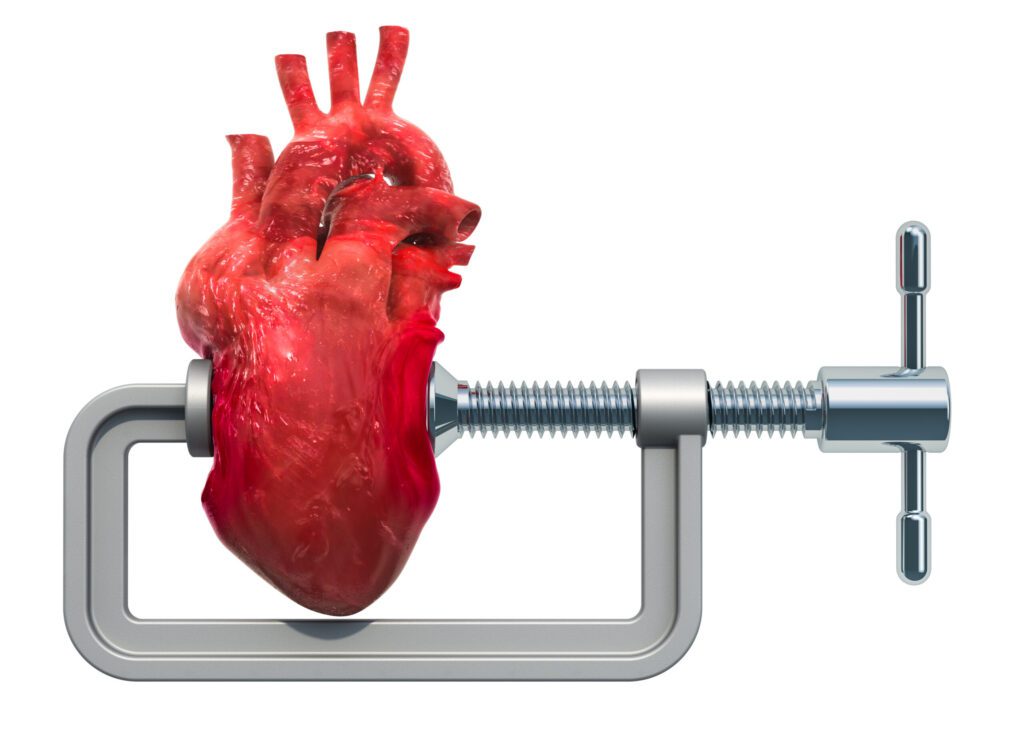Don’t Underestimate the Effects of Stress on Heart Health
by TERESA SCHIFFER
Heart disease accounts for one in every four deaths in the United States. With odds like that, it’s good to know that some contributing factors are within your control. Stress is one of those factors.
Everyone experiences stress at some point, and most of us are familiar with the physical symptoms it can cause: headaches, stomach pain, sleeplessness, depression, and more. Research shows that stress can have a seriously detrimental impact on your heart, which makes it all the more important to learn to manage stress in a healthy manner.
Stress can be caused by any number of triggers. Some of these are obvious, such as being overworked, arguing with family members, or illness. Less obvious are the events in our lives that we look forward to that cause stress, things like getting married, buying a home, having a baby, or getting a promotion. These relatively joyous events can bring unanticipated stress.
Whatever the cause, the body’s reaction to a stressful situation is pretty standard. Adrenaline and cortisol are released, and these hormones speed up your breathing and heart rate, increasing blood pressure. This is the classic “fight or flight” response. This is your body’s way of protecting itself by preparing you to deal with a dangerous situation.
Chronic stress occurs when you are in a constant state of stress for days or weeks at a time. Without time to recover, chronic stress can cause significant increases in blood pressure, blood sugar, cholesterol, and triglycerides. All of these factors are associated with an increased risk of heart disease.
In addition to the physical chain reaction that chronic stress can cause, the ways in which we manage stress can also contribute to poor health. Coping with stress by smoking, consuming alcohol, eating junk food, or engaging in other risky behaviors can add to the negative effects of stress on the body.
Unmanaged stress can trigger a vicious cycle of unhealthy habits. Overeating because of stress can lead to becoming overweight, which places further stress on the heart. Add to this a lack of physical activity or not taking one’s prescribed medications properly, and more stress is added. Not sleeping properly can easily add even more stress.
All of these factors can ultimately lead to an overly strained heart that is not receiving enough oxygen and arteries clogged with plaque deposits. Irregular heart rhythms, digestive problems, inflammation, chest pains, and other serious physical symptoms can easily develop. Left unchecked, these are the problems that can then contribute to heart disease and cardiac events.
There are numerous ways to respond to stress that can help to diminish its negative impact on the body. It’s easy to recommend avoiding those situations that can cause stress, but often that is simply not realistic. We all have to deal with stress at some point. The key is to do so wisely.
One of the best things that we can do to combat stress is exercise. Adults should aim for at least 150 minutes of moderate-intensity exercise per week. This one approach has a multitude of benefits, including weight control, improved cholesterol levels, lower blood pressure, even a decreased incidence of anxiety and depression. Studies have shown that individuals who exercise regularly have a reduced physical response to stress.
Cultivating healthy habits in general is a great way to reduce stress. Quit smoking, reduce your alcohol intake, and watch what you eat. Cut back on the refined sugars and processed foods, and increase the amount of fresh vegetables and fruit in your diet. Small, steady changes toward a healthier lifestyle will build up into an improved state of physical and mental health, making it easier to manage whatever curveballs life may throw at you.
Finally, taking time for yourself and building healthy social connections will also help reduce the effects of stress. Make sure you have time to relax and tend to your own needs each day. Connect with your friends, family, and community. Don’t take for granted the value of healthy relationships. A strong support system provides comfort and encouragement and decreases the chance of engaging in various unhealthy behaviors.
